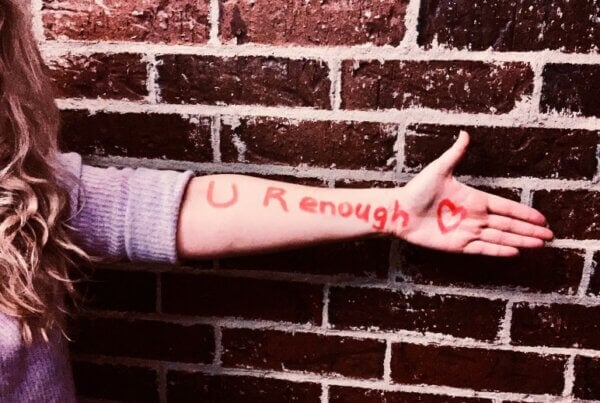Unearthing the statistics around drug and alcohol use disorder is a grim task but essential in understanding the magnitude of this issue.
According to the National Survey on Drug Use and Health by the Substance Abuse and Mental Health Services Administration (SAMHSA), approximately 20.3 million people across the United States aged 12 or older struggled with substance use disorder in 2018. Alarmingly, these figures keep escalating year after year. If left unchecked, this behemoth keeps wreaking havoc on individuals’ health, livelihood, families, and communities.

A family finds strength in unity as they approach their daughter with love, concern, and questions about the process of rehab.
The Substance Use Disorder: An Insidious Descent
Substance use disorder is an ailment that creeps slowly into an individual’s life, gradually gaining hold until it becomes essential for survival – much like daily sustenance. The World Health Organization (WHO) defines substance use disorder as a disease characterized by the harmful or hazardous use of psychoactive substances such as alcohol and illicit drugs.
Identifying a Problem: A Prerequisite to Rehab
Observe their behavior closely before diagnosing someone with substance use disorder or suspecting they have a problem. Here are some red flags that could suggest a potential issue:
1. Neglected responsibilities at home, school, or workplace.
2. Engaging in risky activities like drunk driving.
3. Legal troubles.
4. Deteriorating relationships.
5. Excessive indulgence in substance usage despite adverse consequences.
Approaching these delicate circumstances requires a tactful approach emphasizing love and concern rather than judgmental attitudes, which may induce defensiveness.
Understanding The Rehab Process
Rehabilitation for substance use disorders often comprises four main steps: Intake, Detoxification (Detox), Therapy or Treatment, and Aftercare/ Recovery.
1. Intake – It’s when a patient meets with a counselor for types of service suggestions and establishing goals.
2. Detox – A medically supervised process that helps rid the body of harmful substances, marking the first step toward recovery.
3. Therapy or Treatment – It addresses the psychological and emotional factors contributing to substance use disorder.
4. Aftercare/ Recovery – Sober living, follow-up counseling, and support groups uphold the momentum gained during rehab.
The Importance of Seeking Help Early
Understanding that early intervention heightens the likelihood of successful rehab outcomes is fundamental. The sooner an individual acknowledges their problem, seeks help, and commits to rehab, the lower their chances of irreversible damages or fatalities.
Communication: The Threshold for Seeking Help
Talking to a loved one or yourself about getting help requires tremendous courage. Your communication should be non-confrontational and supportive, emphasizing concern towards health, self-realization, and reassurance about available support. It’s worth practicing or writing down what you want to speak about in advance to keep your thoughts clear and concise.
Popularly known programs such as Alcoholics Anonymous (AA) use proven methodologies like the “12-step program” to help individuals through their recovery journey. Al-anon is another resource designed specifically for families dealing with alcohol abuse issues. More recently, sober living houses, or sober livings, provide a safe drug and alcohol-free space to extend sobriety after detox.
The successful treatment of substance use disorders relies heavily on professional support offered by psychiatrists, therapists, or counselors who provide personalized advice and treatment programs based on physical, psychological, and environmental factors unique to each individual.
Conclusion
Overcoming substance use disorder can be an uphill battle fraught with disappointments in relapses but buoyed up by wins in small, healthy lifestyle changes. Resources like AA, Al-anon, and therapy sessions with counselors provide mechanisms for survivors and extend support to affected relations struggling with a loved one’s substance addiction journey.
Ultimately, remember: it truly takes a village – psychiatrist consultation, familial support, societal encouragement – all working together with harmed individuals until they have appropriately reclaimed their lives from substance use disorder depths. If you or someone you know is hurting from addiction or need to learn more about rehabilitation, please contact Pacific Beach Sober Living San Diego.
By Valerie G.



